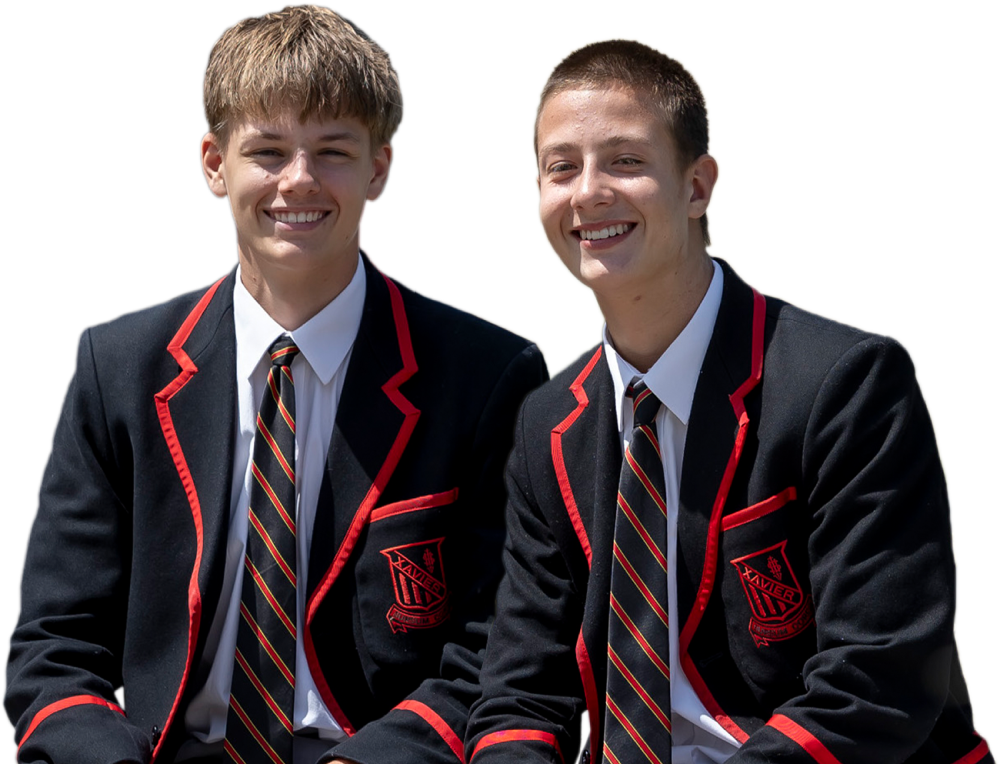Remain Open To “The Other”
By Richard Harmer, Chair of the Xavier Social Justice Network
A cornerstone of an Ignatian spiritual perspective is the pursuit of a balanced view when considering complex and challenging issues – a willingness to open one’s heart and mind to perspectives and experiences that may contradict one’s own current view or sense of Self.
Only by opening our hearts and minds to “the other” can we genuinely witness another’s experience as they do and, in turn, open ourselves up to being changed through that experience.

Opening our hearts and minds to “the other” also cultivates greater authenticity and understanding in our relationships.
In deepening our relationships with others, we also deepen our relationship with ourselves, which, in turn, further deepens our desire towards solidarity for and with others – a virtuous cycle towards greater connection and inclusivity in a world that oftentimes defaults to divisiveness and disunity.

This Ignatian spiritual principle of going more deeply in our relationships with “the other” – seeking the magis – resonated at the heart of this year’s XSJN Dare To Be Different forum that focused on the Voice Referendum.
Fr Frank Brennan SJ, long-term social justice advocate working with Australia’s First Nations Peoples and author of the recently published book, ‘An Indigenous Voice To Parliament’, presented a brief history of the journey of a First Nations Voice enshrined in the Constitution, commencing with its inception in the Uluru Statement from the Heart in May 2017.


Fr Frank’s presentation invited the audience, whether in favour of the Voice or not, to let go of pre-established ideas or decisions about the Voice and consider the views of “the others”.
He challenged the audience at the DTBD forum to consider a preference:
- To vote “No” in the hope of finding a perfect solution to be implemented within an imperfect system; or
- To vote “Yes” and adopt an imperfect solution that will be implemented in an imperfect system.
This challenge spotlights an age-old conundrum: To seek perfection in an imperfect world or to accept and embrace the elegant imperfection of the world. Yet, Fr Frank challenges his audience to go one step further in considering “the other” beyond deliberations regarding the suitability of the proposed approach to activating the Voice.

He invited each audience member to contemplate the potential impact on First Nations Peoples of a successful “Yes” or “No” vote on the 14th of October, inviting each person charged with voting in the Voice Referendum to open their hearts and minds in solidarity with our First Nations Peoples as they seek a more inclusive future for all Australians.
The result of the Voice Referendum is now known.
Yet, Fr Frank’s invitation remains true: To open our hearts and minds in solidarity with our First Nations Peoples … to truly see “the other”.

And, of course, to work tirelessly together to address the unjust system that, for our First Nation Peoples, continues to perpetrate multi-generational suffering.
Regardless of the outcome of the recent Voice, the need for systemic change remains—proportionately, our First Nations Peoples continue to be the most incarcerated people in Australia, with too often disastrous consequences.

As often stated in the months leading up to this year’s Voice Referendum, change begins with the first step. As a nation, we took those all-important first steps towards greater recognition and reconciliation with our First Nations Peoples more than 50 years ago.
Whether we recognise it or not, given the outcome of the Voice Referendum, a shared responsibility for all Australians is to commit to continue walking in solidarity with our First Nation brothers and sisters towards a more inclusive and equitable society for all.
